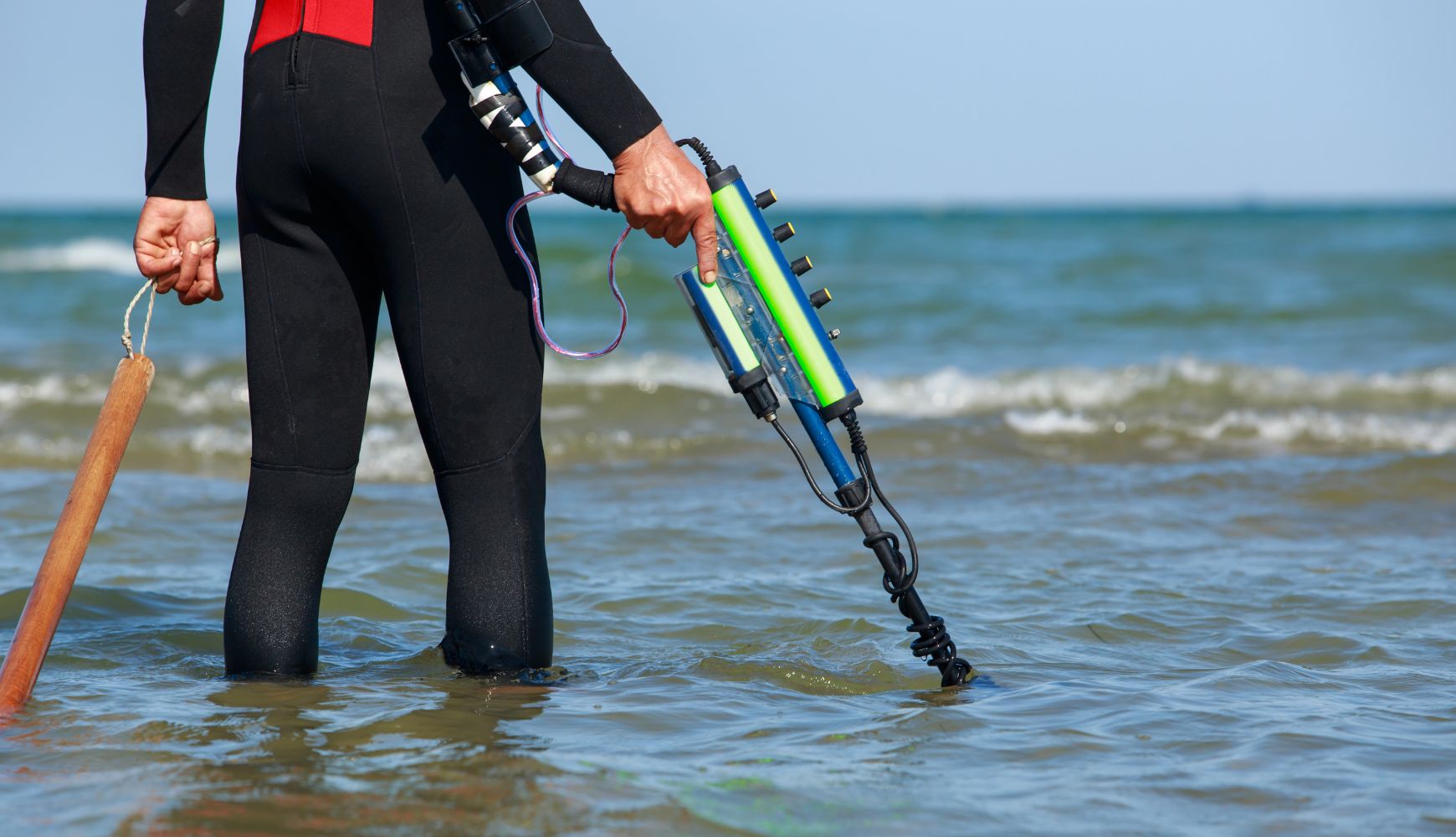
5 Tips for Using a Metal Detector in the Water
Metal detecting is a much more adaptable hobby than it looks at first glance. You don’t have to stick to the shoreline when detecting on the beach—choose a detector that will let you get in the water! If you want to use a metal detector in the water, these tips from Northwest Detector Sales will guide you in the right direction.
Choose a Waterproof Detector
Before you wade into the water with your metal detector, make sure you’re using one that’s suited for aquatic environments. Northwest Detector’s selection of Minelab metal detectors is fully weatherproof and perfect for detecting in wet areas.
If you plan to go detecting in a freshwater environment, choose a very low frequency (VLF) detector, as its high sensitivity will help you pick up small targets. If you’re headed for saltwater, use a pulse induction (PI) detector; its efficiency is not affected by mineralized ground or wet sand.
Test on Dry Land
Acclimate yourself to the frequency and sensitivity settings on your detector by running tests on dry land first. Bury a few small metal objects at varying depths to see what your detector will pick up. Adjust those settings as necessary, taking into consideration how deep underwater you’ll be going with your detector.
Practice Your Technique
Proper metal detecting technique is similar for both underwater and dry land expeditions. Sweep your detector in slow, sustained arcs in front of you, taking care not to swing it around too hard. Thoroughly cover each area before moving on.
Prioritize High-Traffic Areas
As with many other metal detecting locations, you’ll have the most luck if you concentrate on areas that experience a lot of foot traffic. Think like a common beachgoer or tourist—where are people likely to drop things? If you’re on a beach, stick close to the shoreline to increase your chances of finding coins and jewelry.
Use Mother Nature’s Timing
When metal detecting in or near bodies of water, take your cues from nature as you plan your excursion. Go out with your detector shortly before low tide; this way, you’ll have better chances of finding treasures in deeper parts of the water. If you plan to detect on a populated beach, try to go early in the morning, before it gets crowded, or late in the evening after most folks have gone home.
Want to get accustomed to using a metal detector in the water to find lost treasures? Use these tips from Northwest Detector Sales to choose the right equipment and properly time your expedition for the greatest chances of success.

